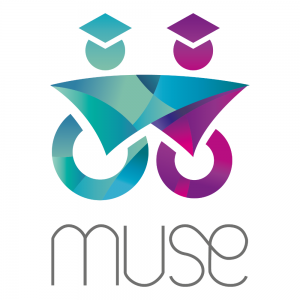Lab Contact: Jacqueline Cawston
Team: Gemma Tombs, Sarah Merry, Kate Green, Oliver Wood, Debra James
 Overview
Overview
MUSE: Modernity & Disability: Ensuring Quality Education for Disabled Students
Accessibility of Higher Education
Democratisation of HE has helped to ensure a growing trend of increasing enrolment of students with disabilities, although it is still not significant enough in terms of potential numbers. According to the World Health Organisation, 15% of the world’s population are estimated to live with some form of disability (World Report on Disability, 2011) and evidence suggests that persons with disabilities are disproportionately represented among the world’s poor.
The adaptation of HE to cater for disability is of major importance from an economic, political and social point of view. Only through this can the employability of persons with disabilities be enhanced, and public policies focusing on the promotion of work, income security, poverty prevention and social exclusion can be supported. Consequently, the international community is increasingly taking into consideration the rights of students with disabilities regarding their access to HE. The Convention on the Rights of Persons with Disabilities was ratified by Chile, Argentina and Mexico in 2007.
Objectives
In this framework, the European Commission has approved the project “Ensuring Quality Education for Students with Disabilities – MUSE” co-financed by the European Commission through the ERASMUS + programme.
The overall objective of the MUSE project is to improve access, ensure learning conditions and develop employment opportunities for HEIs’ Disabled Students in Latin American countries via modern inclusion practices and networking. The three Latin American countries involved in are Chile, Mexico and Argentina, with the support of institutions in EU (UK, Spain, Italy and Greece).
The project is being led by Viña del Mar University in Chile and has 10 partner universities in total.
The Specific Objectives
To create a modern inclusive framework through the creation of Students with disabilities Support Centres and long-term strategies for the access and retention of Students with disabilities in HE system.
To establish a Regional Network to increase inter-institutional relations and sharing of best practices while responding to society’s equity demand.
Goals
MUSE will help improve the inequality situation faced by disabled students by accomplishing the objectives though concrete tangible outputs:
- Increase inter-institutional cooperation and sharing of good practices via the needs analysis and transfer of know-how.
- Enhancement of managerial and administrative staff capacities in dealing with and implementing inclusive education practices.
- Creation of institutional support structures and assistive technology to enable access to HE and foster the consolidation of a social integration culture within universities.
- Development of a LA network for the Inclusion of Students with disabilities in Higher Education.
- Increase external relations cooperation to improve access and employment of students with disabilities.
- Increase public awareness and understanding on inclusive education within higher education institutions.
Technology Application
In this framework, a wide range of assistive technology (AT) makes it possible for an individual with special needs to operate a computer and telecommunication equipment. Alternative keyboards, text-to-speech software, screen magnification, word-prediction software, grammar and spelling checkers, and other AT have significant role in giving people with disabilities access to IT that will enhance their academic and career opportunities.
Milestones & Timeline
The project activities are all interlinked and have been arranged in a logical sequence, so that each activity produces an output that forms the basis for the next steps and activities. The project strongly supports and believes in the motto “Nothing About Us Without Us” used by Disabled Peoples’ Organizations throughout the years as part of the global movement to achieve equal opportunities, with the full inclusion of affected persons in the processes. The action will invite disabled students to have a full participation in the project at all its stages.
- Creation of Needs Analysis report, utilising survey responses from partner institutions and focus group data from staff and students.
- Organisation of site visits, leading to the development of a Good Practice Guide.
- Provision of a targeted training programme for staff related to the implementation of relevant services, followed by a ‘train-the-trainer’ approach, providing trainees with the ability to replicate the training activities within their institutions.
- Creation of Disabled Students Support Centre, the selection and recruitment of a staff member to run the Centre on a daily basis, and the design of a three year strategic plan for the support centres.
- Purchase and installation of necessary Assistive Technology (AT) to be located in the Centre, and the provision of training on the use of the AT.
- Regional networking for the inclusion of disabled students in Higher Education. The support of regional dialogue on issues related to inclusive education and support of students with disability within HEIs.
- Organisation of an international conference on strategic topics: Disability Integration Strategies and Employability, leading to the creation and signing of the Charter on Minimum Standards and Guidelines for Disabled Students Integration in HE.
- Development of a new External Relations Framework, focusing on the opening up of the University towards high schools and in the labour market.
Updates
- May 2016
In early May, representatives from the six Latin American partner institutions visited Coventry University, followed by a visit to the University of Alicante in Spain, in order to identify good practice within the European partner institutions with a view to creating the Good Practice Guide.
Project Timeline:
Start date:January 2016 |
End date:December 2018 |
Status:Ongoing |
Associated Faculties:
- Careers
- Student Support
